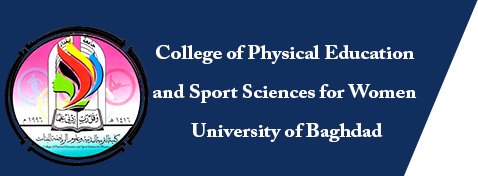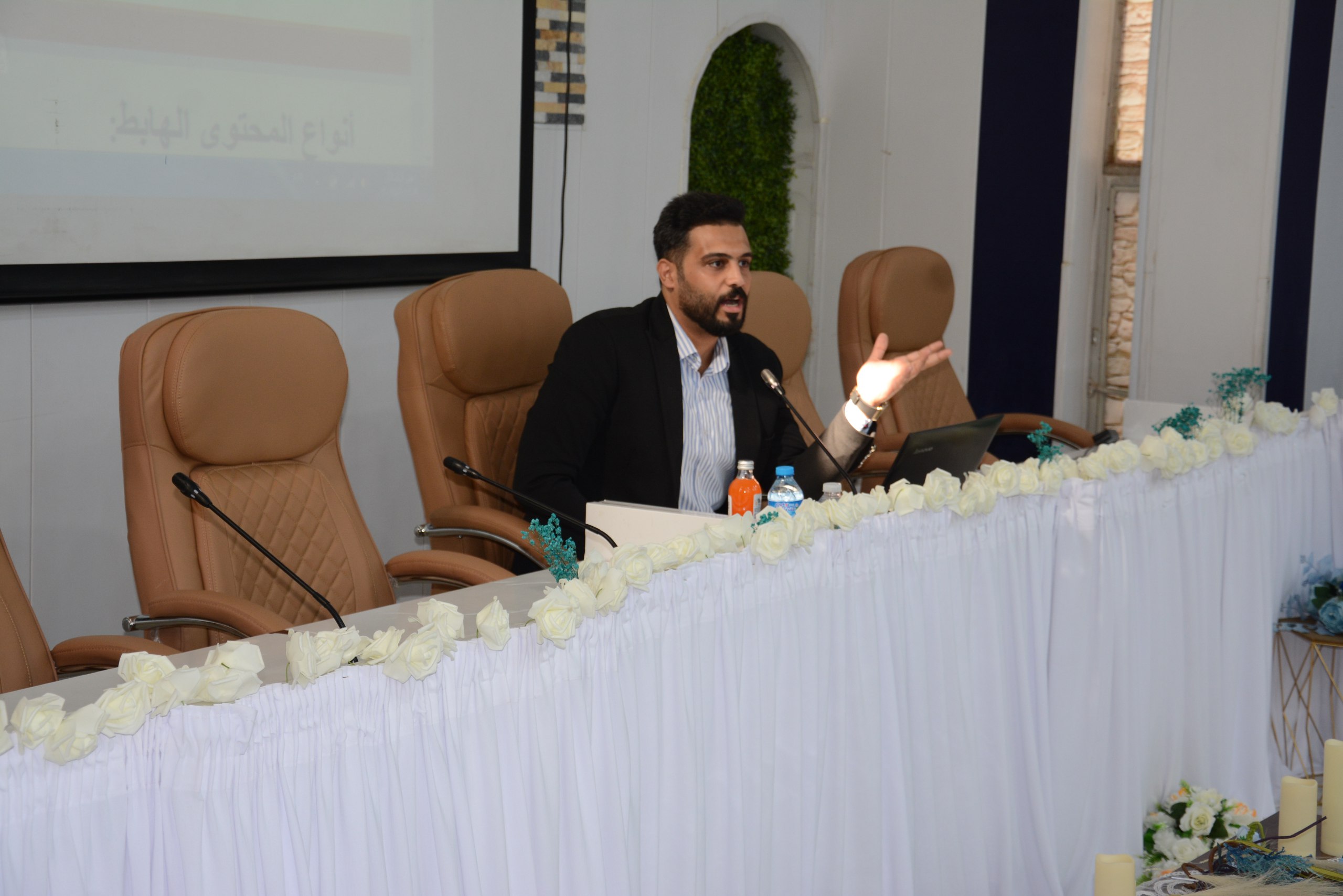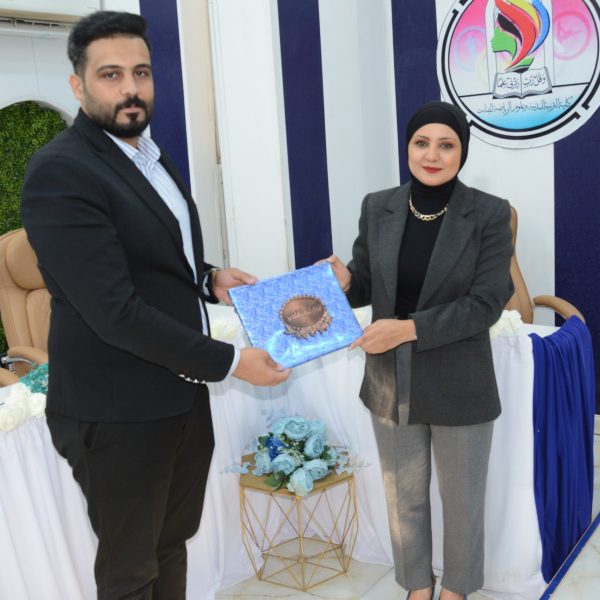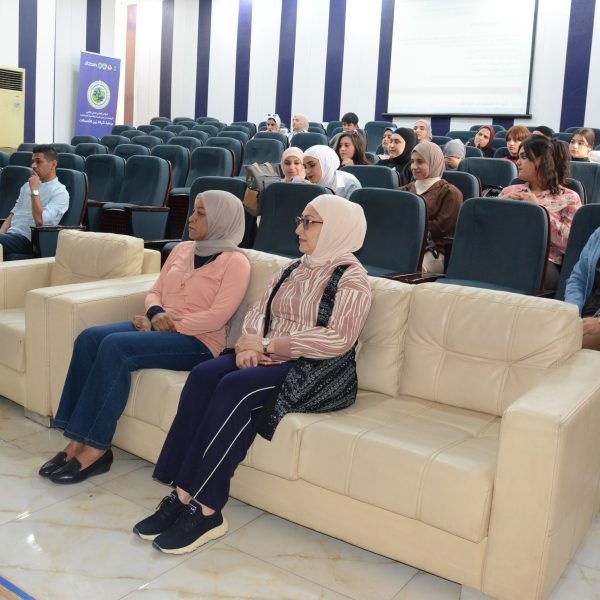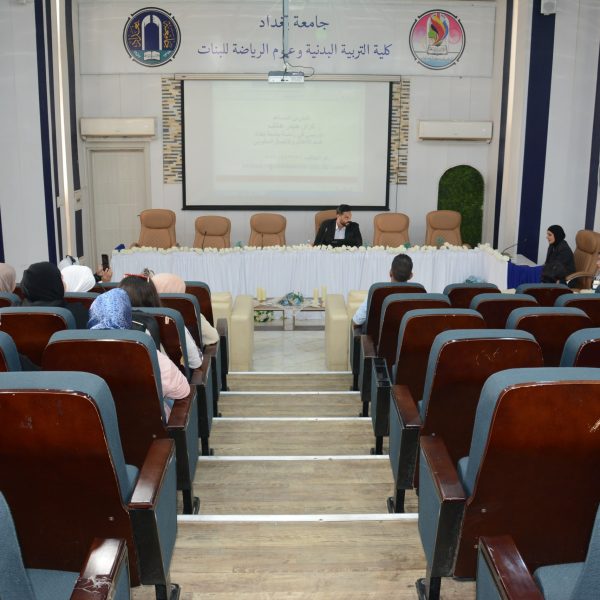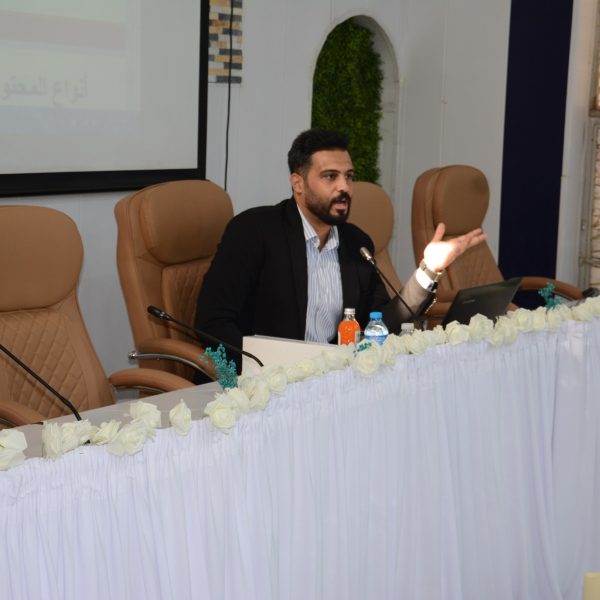The University Psychological Counseling Unit at the College of Physical Education and Sports Sciences for Women, University of Baghdad, hosted—under the patronage of the Dean, Prof. Fatima Abd Malih, and under the supervision of the unit supervisor, Lect. Dr. Hind Salem Taih, the lecturer in the Presidency of the University of Baghdad / Department of Media and Government Communication, and Mr. Karrar Haider Hatif, presented a scientific seminar titled (The Impact of Degrading Content on Youth and the Role of the Audience in Confronting Such Content).
The seminar aimed to define the concept of degrading content, its types, causes, and ways to protect society from its effects on the individual’s personality, identity, values, and social behavior.
Mr. Karrar discussed the spread of degrading content on digital platforms and its social and cultural repercussions. He also explored ways to confront this phenomenon through awareness, media regulations, and the promotion of positive content. He highlighted the danger of such content in shaping public taste, stressing the importance of developing critical awareness among audiences to enable them to distinguish between meaningful and harmful content.
He further emphasized strengthening the role of influencers in redirecting digital content toward creativity and social responsibility, calling for initiatives that support young creators in producing refined content that reflects societal values.
At the end of the seminar, he presented several key recommendations, including:
-
Establishing professional and ethical standards for digital content production.
-
Supporting platforms that promote educational and purposeful entertainment content.
-
Enhancing partnerships between universities and media institutions to monitor and analyze online content trends.
-
Strengthening family culture and awareness in confronting harmful digital content.
This seminar contributes to achieving two Sustainable Development Goals: Goal 4 (Quality Education) and Goal 17 (Partnerships for the Goals).
The University Psychological Counseling Unit at the College of Physical Education and Sports Sciences for Women, University of Baghdad, hosted—under the patronage of the Dean, Prof. Fatima Abd Malih, and under the supervision of the unit supervisor, Lect. Dr. Hind Salem Taih, the lecturer in the Presidency of the University of Baghdad / Department of Media and Government Communication, and Mr. Karrar Haider Hatif, presented a scientific seminar titled (The Impact of Degrading Content on Youth and the Role of the Audience in Confronting Such Content).
The seminar aimed to define the concept of degrading content, its types, causes, and ways to protect society from its effects on the individual’s personality, identity, values, and social behavior.
Mr. Karrar discussed the spread of degrading content on digital platforms and its social and cultural repercussions. He also explored ways to confront this phenomenon through awareness, media regulations, and the promotion of positive content. He highlighted the danger of such content in shaping public taste, stressing the importance of developing critical awareness among audiences to enable them to distinguish between meaningful and harmful content.
He further emphasized strengthening the role of influencers in redirecting digital content toward creativity and social responsibility, calling for initiatives that support young creators in producing refined content that reflects societal values.
At the end of the seminar, he presented several key recommendations, including:
-
Establishing professional and ethical standards for digital content production.
-
Supporting platforms that promote educational and purposeful entertainment content.
-
Enhancing partnerships between universities and media institutions to monitor and analyze online content trends.
-
Strengthening family culture and awareness in confronting harmful digital content.
